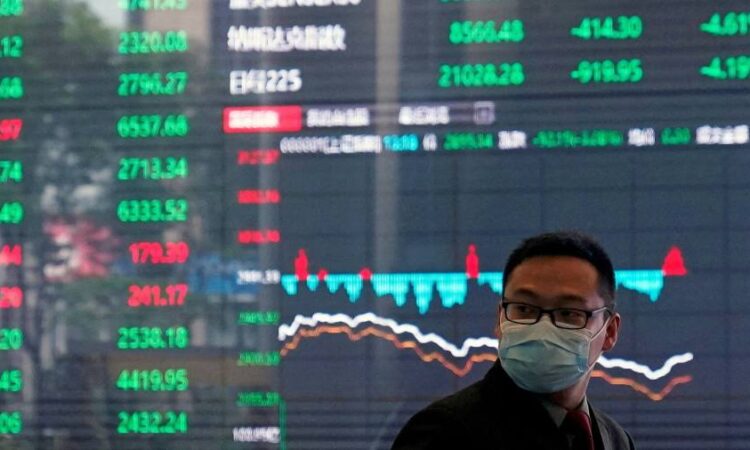
Chinese equities fell on Tuesday after disappointing trade data added to investors’ concerns that the country’s post-zero Covid recovery might prove less explosive than previously expected.
China’s CSI 300 fell 1.4 per cent and Hong Kong’s Hang Seng index lost 0.4 per cent after imports in January and February declined 10.2 per cent compared with the same period a year earlier. Exports fared better, falling just 6.8 per cent. Analysts had expected declines of 5.5 per cent and 9.4 per cent for imports and exports, respectively.
Investors in Europe looked ahead to testimony from US Federal Reserve chair Jay Powell to Congress later on Tuesday, when he is expected to provide guidance on the future path of interest rates.
The Europe’s region-wide Stoxx 600 — up 9.4 per cent year to date — rose 0.1 per cent. Futures tracking Wall Street’s benchmark S&P 500 and those tracking the tech-heavy Nasdaq 100 added 0.2 per cent and 0.3 per cent ahead of the New York open.
Tuesday’s Chinese trade figures came after outgoing premier Li Keqiang earlier this week told the annual National People’s Congress that the aim for economic expansion for 2023 was “around 5 per cent” — the country’s lowest growth target for more than three decades.
Beijing’s decision to drop contentious zero-Covid policies late last year triggered a “reopening” rally in Chinese equities that has only recently fizzled out. The CSI 300 rose almost a fifth from November to the start of February but has declined 3.5 per cent since then.
All sectors of the index apart from energy were in negative territory on Tuesday, with technology and healthcare stocks posting the sharpest declines.
“Either reopening has yet to provide much support to import demand, perhaps because many consumer-facing services are not import intensive, or any boost has been offset by a further drop in imports for processing and re-export,” said Julian Evans-Pritchard, senior China economist at Capital Economics.
Imports are expected to pick up later in the year, Evans-Pritchard added, but the better than forecast export figures “may drop back again before long as the one-off boost from easing virus disruptions fades” and foreign demand cools.
Chinese and other emerging market stocks are nonetheless tipped by many investors to outperform those in the US this year as high interest rates and stubborn inflation weigh on the world’s biggest economy. A flurry of strong economic data releases since the start of February have forced investors to up their expectations for where US rates might peak, and how long they might stay at elevated levels.
US government debt strengthened across the board, with the 10-year Treasury yield falling 0.03 percentage points to 3.94 per cent, down from a three-month high above 4 per cent last week. The dollar was steady against a basket of six other major currencies.



